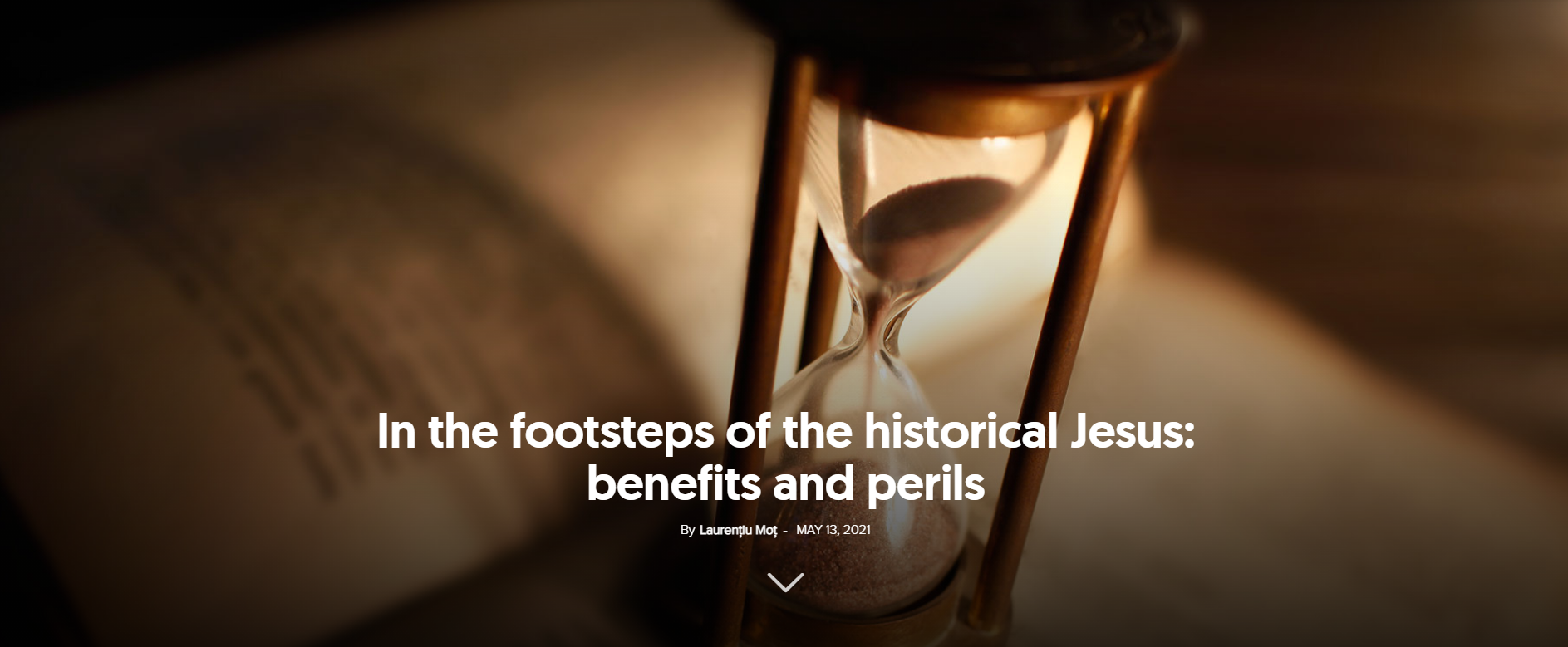The book of the Acts of the Apostles presents an encounter, supernaturally mediated by God, between Philip, one of the seven deacons, and an Ethiopian dignitary. When the Christian missionary met him, the Ethiopian eunuch was reading from the book of the prophet Isaiah, one of the many Messianic prophecies, and asked Philip a question we often ignore: “Tell me, please, who is the prophet talking about, himself or someone else?” (Acts 8:34).
The sincere and open question of the African dignitary is, to this day, one of the most challenging dilemmas for those who study the Scriptures and want to discover their meaning. Formulated in contemporary language, it would sound something like this: Were the prophets of the Old Testament speaking about a Messiah who would come and suffer? Or did they just describe contemporary expectations which the writers of the New Testament applied to Jesus and His ministry?
Reading with critical eyes
In Luke’s account, the question under discussion came from someone who was coming into contact, for the first time, with such a text, and had no knowledge of prophecy or the Messianic expectations of the Jews. Today, the roles seemed to have been reversed: many of those who study the Scriptures, even many theologians, think like the Ethiopian eunuch rather than like Philip, and question the supernatural elements of the Bible, and, implicitly, its capacity to speak with precision about people and events in the future.
One of the first serious attempts to reinterpret the Messianic prophecies of the Old Testament were the books of deist philosopher Anthony Collins, one of the best-read authors of his time. In 1724, he published the work Discourse of the Grounds and Reasons for the Christian Religion[1], and in 1727 his Scheme of Literal Prophecy Considered[2] in which he sought to show that the prophetic passages of the Old Testament used to justify Jesus’ Messianic character by the authors of the New Testament are separated from their initial context and used incorrectly.
The only interpretation he recognised was the strictly literal one, saying that the biblical authors were talking about realities which were common for the time and place they were living in.
Applying these passages in the New Testament was, in his opinion, similar to using illustration, and, under no circumstances a proof that the coming of Jesus Christ had been anticipated by the Old Testament.
In 1742, less than 20 years after Collins’ work was published, George F. Händel, a German composer living in England, presented his Messiah oratorio. This continues to be one of the best-loved musical works to this day, even though its text is mostly based exactly on those Messianic prophecies that Collins contested[3].
In search of solutions
Bishop Thomas Sherlock, a well-known apologist of that time, tried to offer a response to Collins’ opinions and published, in 1725, a volume of sermons titled The Use and Intent of Prophecy in the Several Ages of the World[4]. He accepted that Messianic prophecies had a meaning which could be concretely applied to the time when they were formulated and that they would be far better understood and completely fulfilled, later on, in Jesus Christ.
The idea of a double interpretation of these prophecies would be adopted and developed by many in the theological world. Nowadays, this is one of the most popular interpretations of these passages. Still, no matter how persuasive it might be, this kind of interpretation limits the predictive and anticipatory value of the Old Testament prophecy. The Messiah is no longer the central figure earnestly awaited by the biblical authors and anticipated by their writings, but a mere future projection of the realities experienced by them.
In the following decades, theologians would focus on solving Collins’ dilemma, offering various answers to his challenge. The anti-supernaturalist school tried to remove the idea of foreknowledge and prophecy from theology, limiting Scripture to a mere historical document. As a reaction to this, Christian apologists sought solutions that were sometimes syncretic and inconsistent with the view of biblical authors, for fear of appearing to hold opinions contrary to their contemporary reason or research.
Still, who is the prophet talking about?
There are theologians who think that the Messianic prophecies are exactly what they purport to be: predictions about the life and activity of Jesus Christ, expressed by the prophets, based on the revelation they received from God, and predictions that came true in their entirety in the events recounted in the New Testament. Here are some pertinent arguments:
God’s foreknowledge. To deny God’s foreknowledge means to deny the very essence of His existence. God cannot be anything less than what He claims to be. To deny one of His attributes means to recreate Him in our image. We lend God our limits when we pretend He cannot do something. If God exists, then He is able to do anything.
The unity of Scripture. The second argument in favour of accepting the Messianic prophecies and predictions about Jesus, and not mere answers to the prophets’ contemporary dilemmas, is the fact that the New Testament interprets these prophecies exactly as such. If we accept that God inspired, in equal measure, both parts of the Scriptures, then it’s obvious that the interpretation that the New Testament offers for the Old Testament is the most pertinent and correct. The Bible has a unity that cannot be denied except by the one who questions its inspiration. This obvious unity is owed to the fact that Jesus Christ and His plan of salvation represent the certainty and hope of both the Old and the New Testaments.
Realities that transcend history. The Messianic prophecies of the Old Testament transcend the historical realities of the time in which they were written. A very good example is Hannah’s song from 1 Samuel 2: “He will give strength to his king and exalt the horn of his anointed” (verse 10). She speaks about “His King” and “His Anointed” in a time when Israel knew no ruler. But this is not the only prophecy of this kind. Whether we speak about the promise in Eden, from Genesis 3:15, Jacob’s prophecy regarding the heir of Judah (Genesis 49:10), Moses’ promise that God will raise a prophet like him for the Israelites (Deuteronomy 18:15), or the historical description of the time when the Messiah would come, from Daniel 9:25-27, all these references to the Messiah-to-come go beyond the limits of the immediate historical context. Moreover, the Jews themselves—the direct recipients of these predictions—did not interpret them as a solution for their time, but in view of the Messianic advent. Nearly a millennium and a half after Moses had made the promise, the Jews asked John the Baptist very directly, “Are you the Prophet?” (John 1:21)
God promises and fulfils. If we accept that the almighty God was the One who inspired the biblical authors to make these precise predictions about the Messiah, we must also accept that He has the power to fulfil them. It’s true that some passages also refer to some present realities from the time of the biblical authors, but we mustn’t forget that “the word about the past and the word about the future both shared the same working in history, a working now as well as a working then”[5].
God worked then with the same words, and He continued to work for the fulfilment of His eternal plans, even if people did not have a clear understanding about what or how these predictions would be fulfilled. The New Testaments observes that the prophets “who spoke of the grace that was to come to you, searched intently and with the greatest care” (1 Peter 1:10), which shows that they had a limited understanding, as we might have as well.
About Himself or someone else?
This remains, to this day, a challenging question. Even if they may be different, the answers must not start from the assumption that it is impossible for God to know or predict the future, nor from the premise that we can interpret these predictions better than Scripture itself does. However, learning from their fulfilment that God knows what will happen and moulds history in the direction of the fulfilment of His plans, we can have the certainty that what He says about our time will come true with the same certainty, despite the fact that not all the details are crystal clear to us.




















